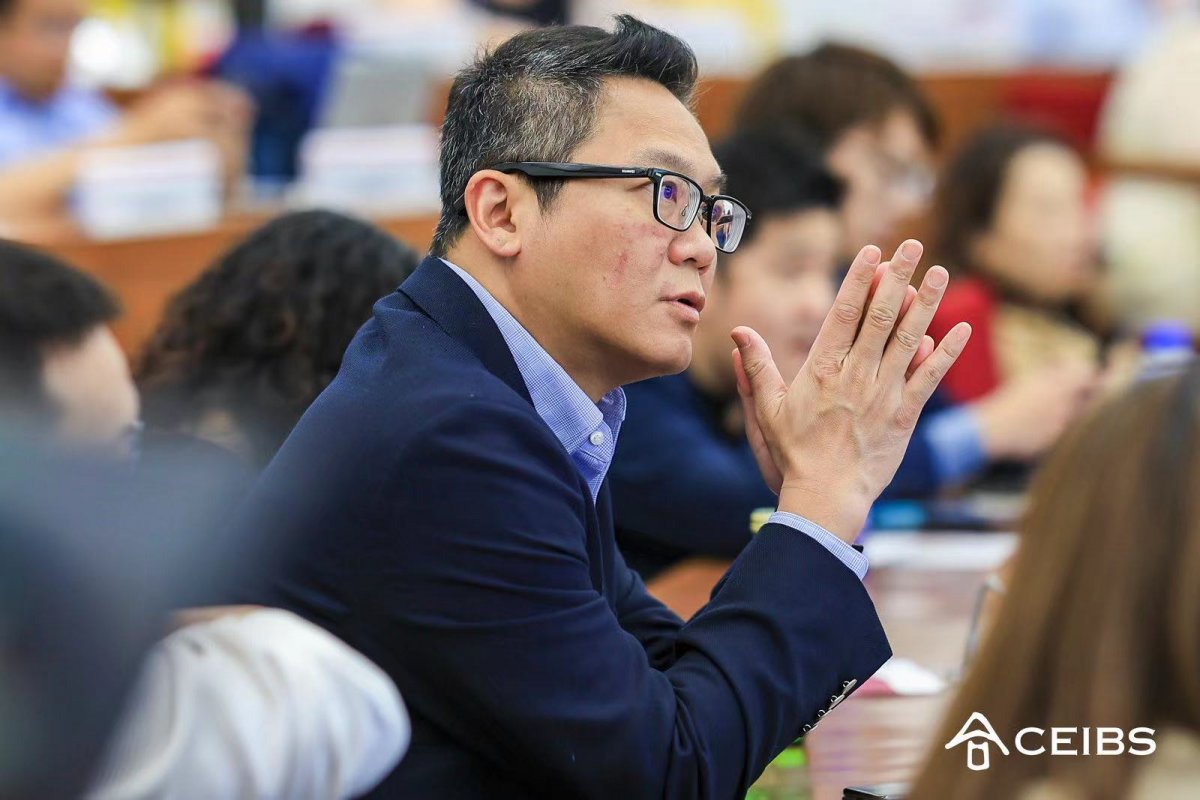Making valuable ESG investments contributes to business performance
April 19, 2023. Shanghai – Embedding environmental, social, and corporate governance (ESG) commitments into business strategy is beneficial for companies’ long-term financial and business performances, Vice President of Bureau Veritas Greater China Certification Business Group Fanny Zou told an audience at a CEIBS Executive Forum at our Shanghai campus today.
During the event, Senior VP of Industry & Facilities Division at Bureau Veritas Greater China & Northeast Asia Region Commodities Jing Han and Ms. Zou challenged conventional ESG investment thinking and introduced how ESG products are being used as tools to assess the alignment of company targets and objectives to support low-carbon transition.
A France-based global leader in testing, inspection, and certification services, Bureau Veritas has established an extensive portfolio in building and infrastructure, marine and offshore activities, certification, agri-food and commodities, and consumer goods services, with an aim to help companies boost quality, safety and environmental and social responsibility.
“Investing in ESG pays off financially. Companies with good ESG practices not only have lower capital costs, but also enjoy better performance in stock prices,” Ms. Zou said, adding that companies shouldn’t be forced in ESG investment, but rather should take the initiative to incorporate ESG into their business strategies and operations.
Ms. Zou noted as an example Chinese computer giant Lenovo, which has promoted ESG management across its supply chain process by incorporating climate change requirements into their supplier code of conduct.
“The most challenging part of assessing green supplier management lies in data measurement and accuracy […]. Ninety-four percent of Lenovo’s suppliers have received third-party verification of their carbon emission reduction, highlighting the company’s continued efforts in sustainable supply chain management and making it eligible for a top AAA+ ESG rating by international rating company MSCI,” she explained.
Despite progress, challenges still hinder the efficacy of ESG investments, including the promulgation of frameworks, data inconsistencies, a lack of a comparable ESG criteria and rating methodologies, as well as inadequate clarity over how ESG integration affects asset allocation.
“If companies continue to do nothing, they’ll face various ESG risks, such as environmental and climate change risks, compliance risks, market and financial risks, and supply chain management risks,” she said.
In terms of facilitating ESG investment, Ms. Zou highlighted that Bureau Veritas empowers organisations to manage sustainability priorities with reliability and transparency.
“As a third-party service provider, we support enterprises to define sustainability strategies and action plans, set up sustainability roadmaps, monitor the behaviour of their business ecosystems and manage sustainability performance through clear KPIs […]. We also have the sustainability index to assess companies’ ESG maturity level, and display the observations made during audits into actionable aggregated scores available in a digital dashboard,” she explained.
One of the clients that Bureau Veritas has worked with is Contemporary Amperex Technology (CATL), the world’s largest electric vehicle lithium battery manufacturer responding to the European Union’s battery carbon emission reduction requirements.
“The pinpoint for CATL is that they have many supply chains, but little idea about how to collect data and evaluate the performance of their supply chain,” Ms. Zou said. “Therefore, we worked with CATL to define international standards to assess their value chain performance on six standard areas: social, health and safety, environment and biodiversity, climate change, business ethics and responsible sourcing.”
In wrapping up the event, Ms. Zou urged more companies to move forward in the sustainable development as ESG investment is both good for business and the planet.


















